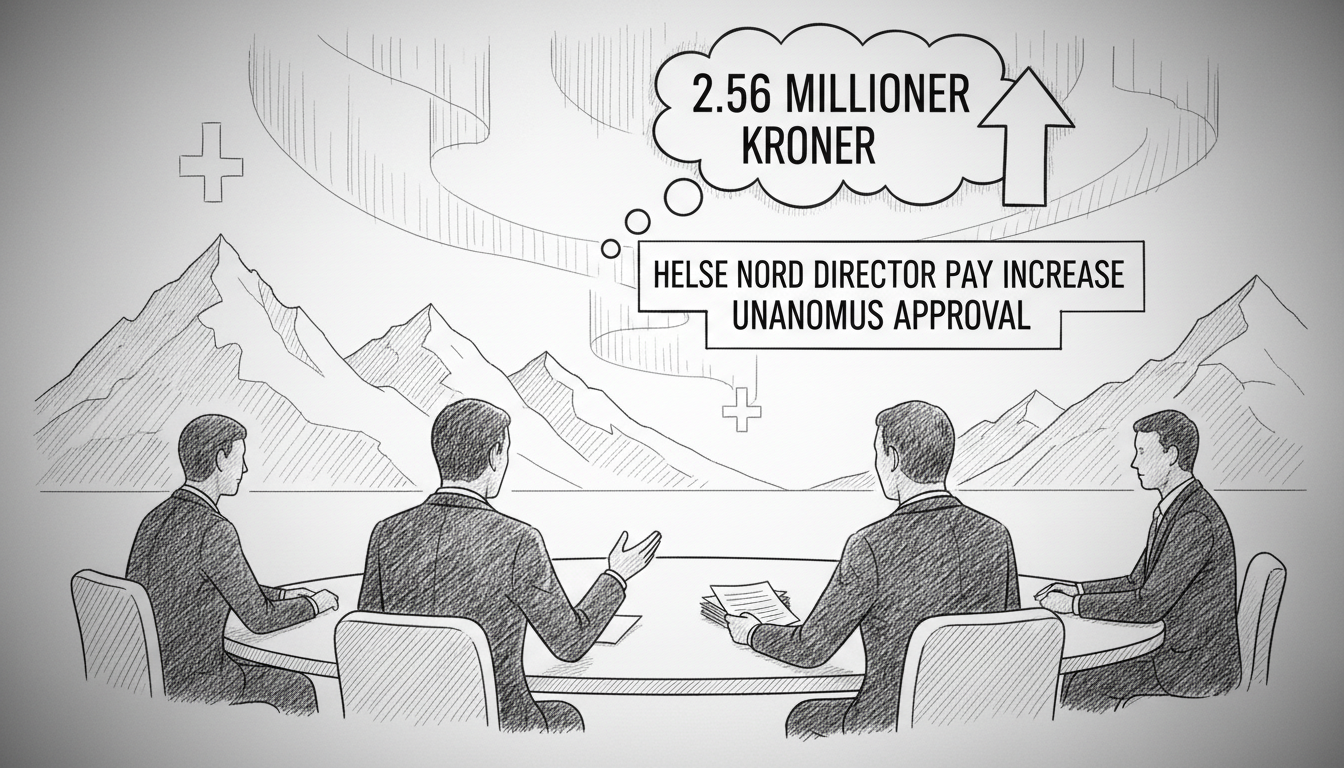The board of Helse Nord has unanimously approved a 4.2 percent salary increase for chief executive Marit Lind. This decision comes amid ongoing debates about executive compensation in Norway's public health system. The raise follows standard annual salary adjustments for public sector leadership positions across Norwegian government agencies.
Lind's base salary now increases by 108,000 kroner to approximately 2.56 million kroner. Her total compensation package reaches about 3.3 million kroner when including additional benefits and allowances. The unanimous board vote indicates full support for the salary adjustment despite previous controversies surrounding health director compensation levels in Northern Norway.
This salary decision reflects broader patterns in Norwegian public sector compensation. Health executives in Norway typically receive higher compensation than other public officials but less than their private sector counterparts. The Norwegian government maintains strict transparency requirements for all public sector salaries, making these figures publicly available through official documents.
Northern Norway's healthcare system faces unique challenges that justify competitive compensation packages. The region covers vast geographical areas with sparse population distribution. Health executives must manage complex logistics across multiple facilities in remote locations like Tromsø and Bodø. These operational difficulties require skilled leadership that commands appropriate market-rate compensation.
Previous salary increases for health directors in the region generated public reactions from Northern Norwegian communities. Some residents expressed concerns about high executive pay while rural healthcare facilities face staffing shortages. Others argued that competitive salaries are necessary to attract qualified professionals to remote regions.
The compensation structure for Norwegian health executives includes both fixed and variable components. Base salaries form the foundation, while additional benefits may include housing allowances, transportation benefits, and performance-based bonuses. These packages aim to balance public sector budget constraints with the need to recruit top talent.
What implications does this salary decision hold for Norway's healthcare system? The unanimous approval suggests board confidence in Lind's leadership during challenging times for Nordic healthcare. Norway continues investing in health system leadership despite economic pressures affecting many European nations. This approach reflects the country's commitment to maintaining high-quality public healthcare services.
Future salary decisions for Norwegian health executives will likely follow similar patterns of gradual increases tied to performance metrics. The transparent nature of these decisions allows public scrutiny while ensuring competitive compensation for essential public sector roles. Norway's healthcare leadership compensation remains moderate compared to international standards while reflecting the country's high cost of living.

